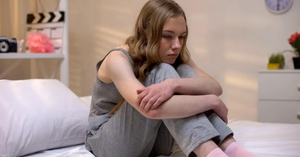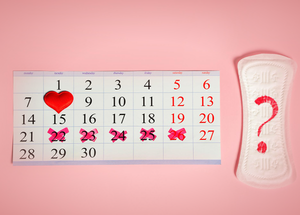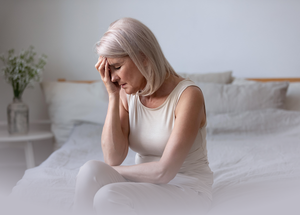Finishing a menstrual cycle often feels like a relief. The cramps ease, the flow stops, and life seems ready to return to normal. Yet for many women, this is when another challenge begins after the period and called post-period fatigue. Instead of feeling fresh, the body may feel heavy, the mind tired, and energy levels low.
The good news is that this phase is temporary, and with the right care, it can be managed effectively. Understanding why post-period fatigue happens and how to cope with it helps restore energy and balance.
Menstruation is not only about visible bleeding. The body goes through complex hormonal shifts, blood loss, and changes in energy metabolism. When the period ends, the body is still in recovery. Reasons for fatigue include:
Knowing these causes allows for better coping strategies.
The first step in managing post-period fatigue is accepting that rest is not laziness but recovery. Many women feel guilty about slowing down after their cycle, but acknowledging the body’s need for extra care is important.
Simple habits such as taking short breaks, practicing slow breathing, or scheduling lighter tasks for the first few days after menstruation can make a big difference.
Food choices directly affect recovery. After menstruation, the body benefits from:
Avoiding heavy, greasy, or overly processed food helps prevent sluggishness. Small, frequent meals also keep energy levels steady.
It may seem natural to avoid activity when tired, but gentle movement often improves fatigue. Light exercise boosts blood circulation, releases endorphins, and increases alertness. Helpful options include:
Strenuous workouts should be avoided if the body feels drained, but keeping some level of activity maintains overall vitality.
Good sleep is one of the most effective remedies for post-period fatigue. Establishing a sleep routine helps the body reset hormonal balance and energy stores. Practical steps include:
Naps of 15–20 minutes during the day can also provide a quick energy boost without disturbing nighttime sleep.
Stress worsens tiredness. The mind and body are closely linked, and post-period fatigue becomes more noticeable under pressure. Stress management techniques such as deep breathing, journaling, or spending time outdoors promote relaxation. Even a few minutes of mindful breathing daily helps restore balance.
Some natural remedies can support energy after menstruation:
These remedies are not substitutes for medical treatment but can provide gentle support.
Post-period fatigue is usually mild and short-lived. However, medical consultation is important when:
Doctors may suggest blood tests to check for anemia, thyroid imbalance, or other health issues. Treatment may involve iron supplements, dietary advice, or addressing underlying conditions.
Prevention is often better than a cure. Steps that can help reduce fatigue in future cycles include:
These habits strengthen the body’s resilience and reduce the intensity of post-period tiredness over time.
Post-period fatigue is common, but it does not have to disrupt life. It occurs because of iron loss, hormonal changes, dehydration, and sleep disturbance. Coping requires a mix of rest, nutrition, hydration, gentle activity, and stress management.
If fatigue is severe or persistent, medical advice is important to rule out anemia or other health conditions. With consistent self-care and awareness, women can move through their cycles with greater energy, balance, and confidence.
Ending the cycle does not have to mean starting another struggle. With the right support, the days after menstruation can be lighter, calmer, and filled with renewed strength.
About PeriodSakhi
PeriodSakhi is your trusted companion for understanding your menstrual health. With easy-to-use tools, it helps you track your periods, ovulation, fertility, moods, and symptoms, while providing insights into your overall reproductive and hormonal health. PeriodSakhi also serves as a supportive online community where women can share experiences, find reliable information, and access expert-backed guidance on menstrual health, PCOS, pregnancy, lifestyle, and more.
Disclaimer
The views, thoughts, and opinions expressed in this article/blog are solely those of the author and do not necessarily reflect the views of PeriodSakhi. Any omissions, errors, or inaccuracies are the responsibility of the author. PeriodSakhi assumes no liability or responsibility for any content presented. Always consult a qualified medical professional for specific advice related to menstrual health, fertility, pregnancy, or related conditions.
Start the conversation
No comments yet. Start the conversation by leaving the first comment!





